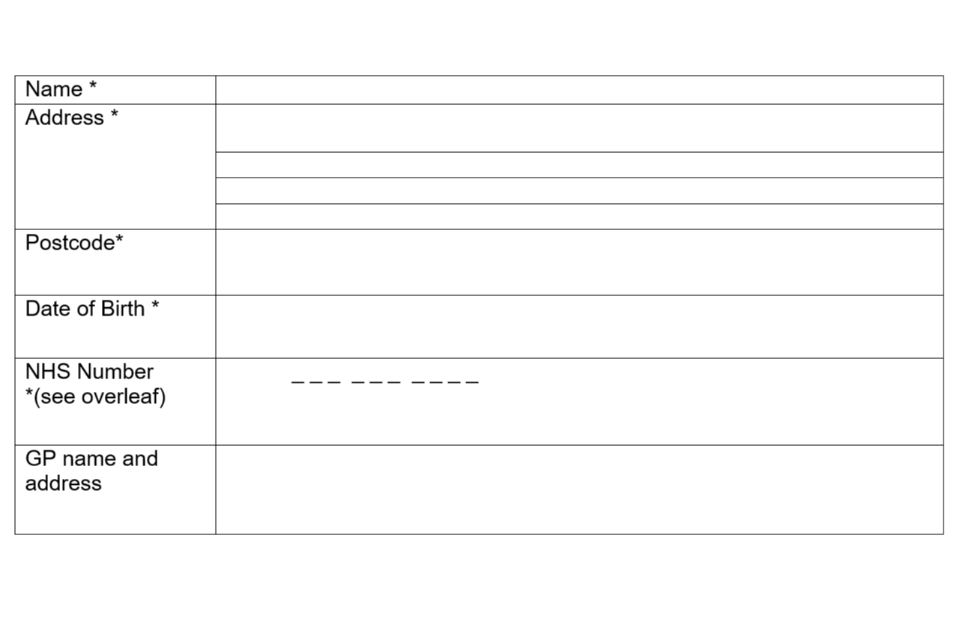Appendix B: Self-referral form and NHS number guidance
Updated 23 May 2025
Self-referrals can only be accepted if all fields marked * have been completed

1. About NHS numbers
Your NHS number is unique to you and is used to help healthcare staff and local services match you to your health records. It is an important step towards providing you with safer patient care. Everyone registered with the NHS in England and Wales has their own NHS Number. It can also be found on any prescription.
Your NHS number is the 10-digit number which is printed on your NHS medical card. An example of an NHS number is 450 557 7104.
Some older medical cards include an old-style NHS number which consists of both numbers and letters. Although having an old-style NHS number will not affect the NHS care provided to you, the old-style numbers have now been replaced with the new-style format which was first introduced in 1996 and the NHS AAA Screening Programme will only be able to offer screening if you provide details of your current (10-digit) NHS number.
2. How do I find my NHS number?
If you want to know your NHS number, or you have an old-style number and want to know your new one, please follow the instructions below:
If you are registered with a GP, you will already have an NHS number. To find out your NHS number you can contact your GP surgery (family doctor) and ask them to look it up. To protect your privacy, they may ask you to show them a passport, driving licence or some other proof of identity. Your NHS number will also be on any prescriptions you receive from your GP.
If you are not currently registered with a GP, you will need to register before you can access screening services. When you register with a local GP, you will be sent an NHS number as part of registration. You can go to a GP surgery to register. You can by selecting 鈥楪P Surgery鈥� and entering your postcode to find GP surgeries close to you.
3. Your personal information (sometimes called personal data)
Your personal information will only be used by the NHS AAA screening programme. It will not be passed on to third parties other than healthcare professionals directly involved in screening or any subsequent investigations and treatment. As a national NHS screening programme, we are required to record statistics and may also contribute to research linked to abdominal aortic aneurysms or screening programmes. In the event that your data is used for these purposes, we will not identify any of your personal details other than where there is a clear legal basis.
